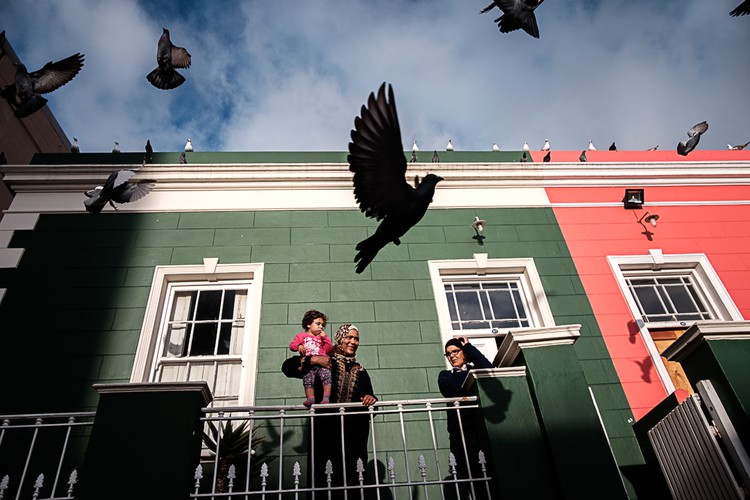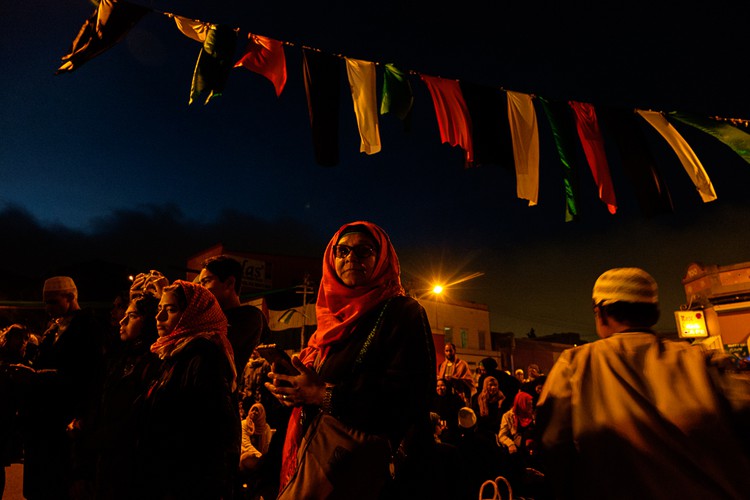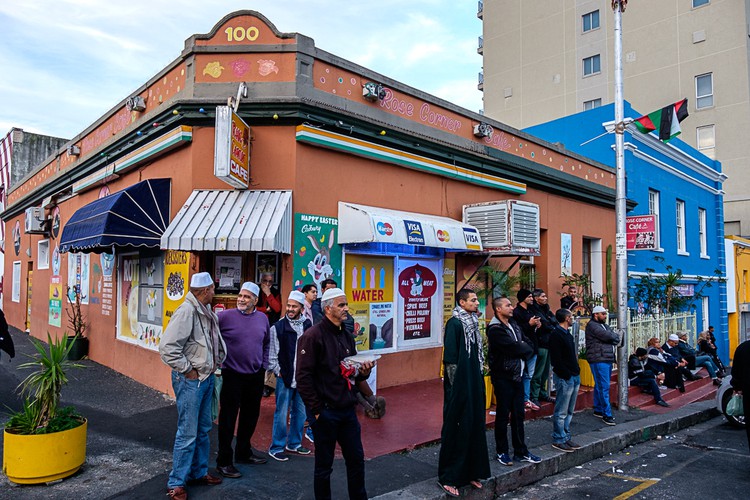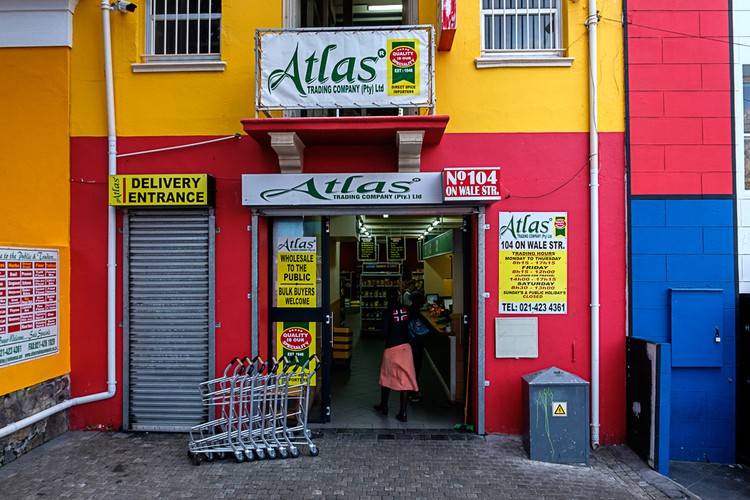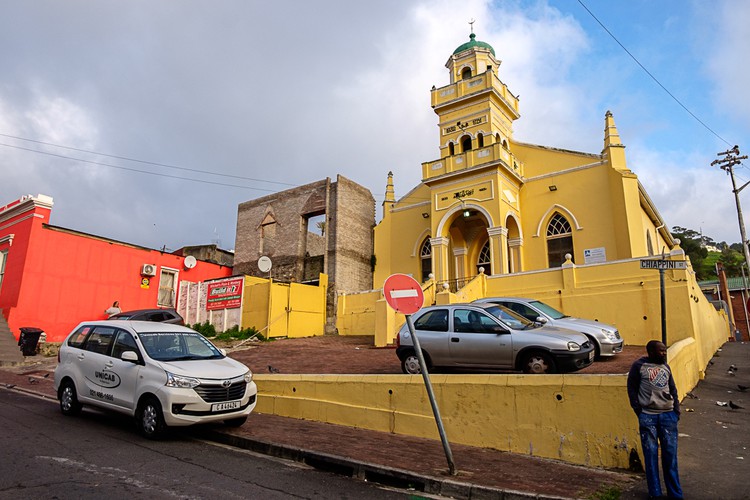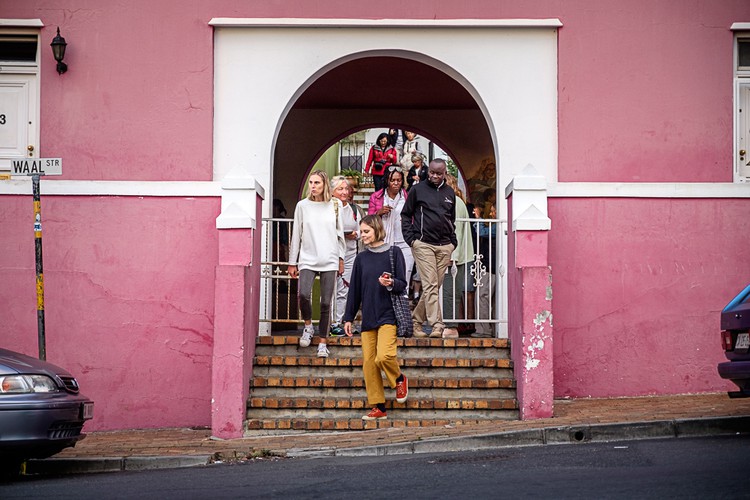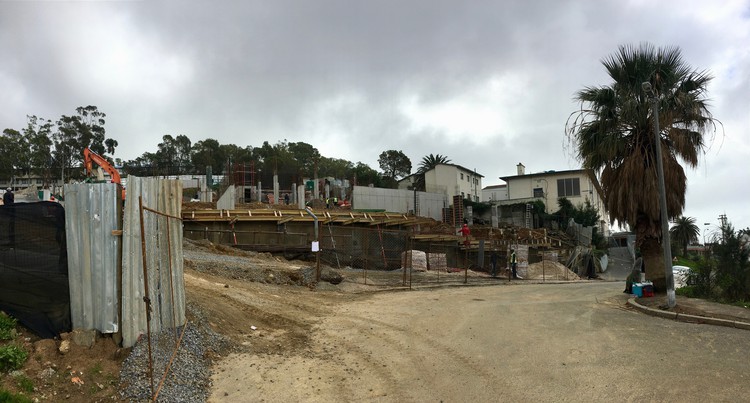Battle for Bo-Kaap’s future
Residents are protesting against gentrification but a heritage consultant is sceptical of “nostalgia of an imagined past”
Tyres burned on Wale Street in Bo-Kaap in May this year with protesting residents wanting to draw attention to concerns about development and heritage in their neighbourhood. To understand the reasons for the protesters’ frustration, we spoke to community representatives, heritage experts and the City of Cape Town.
“The City of Cape Town has continued to approve developments that ignore the best interests of Bo-Kaap residents,” says Mikail Baker of Bo-Kaap Rise, a residents’ social movement that is campaigning for Bo-Kaap to be granted formal heritage protection.
“Developers entering Bo-Kaap show a blatant disregard for the heritage of the area and the socio-economic circumstances that many of its residents find themselves in,” says Baker. “Many lifelong residents have no choice but to sell their family homes, as their rates no longer reflect their incomes and historic disadvantages.”
However, heritage in Bo-Kaap and how it relates to development in the area is a complicated matter.
The breaking of the fast (Boeka) every evening during the Muslim holy month of Ramadan was accompanied by protests like this one in Bo-Kaap.
“The way development is carried out is chaotic. It is dictated by zoning only and not by spatial distribution, heritage or infrastructure,” says Osman Shaboodien, chairperson of the Bo-Kaap Civic and Ratepayers Association. He says development should involve community consultation and take into account the effect on property rates and heritage.
The Bo-Kaap Civic Association is a registered conservation body with Heritage Western Cape and Shaboodien says that while it has been consulted on proposed development, “the developments go ahead as planned anyway”.
In 2013, sub-council 16 called for Bo-Kaap to be declared a Heritage Protection Overlay Zone (HPOZ). This was followed up in 2015 by proposals from the Bo-Kaap Civic Association together with the City’s Environmental Resource Management Department, saying a HPOZ would “assist with the preservation of the cultural heritage of Bo-Kaap”.
A Heritage Protection Overlay Zone (HPOZ) is a mechanism of the City’s zoning scheme that protects and manages development in areas that the City has identified as heritage sites.
Councillor Brett Herron, Mayoral Committee Member for Transport and Urban Development, told GroundUp that “work on the HPOZ for Bo-Kaap is ongoing” and will be considered within the context of the City’s new Spacial Development Framework that was approved by Council in April 2018. He said it will “involve extensive community consultation” and would “commence soon”.
Residents stand outside Rose Corner cafe waiting for the call to break their fasts during Ramadan.
Shaboodien says the community is frustrated by what he calls the City’s “stalling” on the HPOZ. “The City and developers are hellbent on gentrifying Bo-Kaap, but we will resist,” he says. At a sub-council 16 meeting on 18 June 2018, ward councillor Brandon Golding again made the call for Bo-Kaap to be declared a HPOZ.
But Herron says that heritage protection does not affect the City’s zoning scheme. “The properties within the protected area retain their zoning,” says Herron. “However, in order to subdivide, change the land use of the property, develop the property, or make any alterations to the property, the property owner would require a permit from the relevant heritage authority. In the case of a grade one grading this would be SAHRA.”
In 2004 the South African Heritage Resources Agency (SAHRA) assigned Bo-Kaap a grade one rating in terms of the National Heritage Resources Act, but this rating has yet to be made official with a published notice in the government gazette.
GroundUp asked SAHRA why this was the case and what the status of the declaration is, but we had not received comment by the time of publication.
Atlas Trading Company, an iconic shop for many Capetonians, had to relocate to these new premises after the building it had been in for 30 years was sold.
Nevertheless, buildings in Bo-Kaap older than 60 years do have some protection under section 34 of the Act and cannot be altered or demolished without permission from Heritage Western Cape. But, this has no bearing on future developments carried out according to the City’s zoning scheme.
The City’s current zoning map shows that the perimeter of Bo-Kaap — the properties along Buitengracht Street — have been zoned for commercial and mixed-use developments. This means developments like the Hilton Hotel and the 18-storey block on 100 Buitengracht Street, while resisted by residents, do conform to the City’s zoning scheme.
The same can be said for the 12-storey apartment block currently being built by BLOK urban property developers on 40 Lion Street, further up in Bo-Kaap. This property is zoned as “General Residential”. According to heritage consultant Quahnita Samie of Vidamemoria Heritage Consultants, the developers are acting within their development rights.
“Heritage assessments manage development, not prevent it,” says Samie. She says that the decision to sell property is entirely up to the owner. And while heritage status can affect what the new owner of a property does with the land, it cannot prevent the sale of land.
According to the Bo-Kaap Civic, the development on 40 Lion Street is “grossly over-scaled” compared to the single and double storey Victorian cottages on the rest of the street.
Jamia Masjid on Chiappini street is a Bo-Kaap landmark.
Colin Wardle of BLOK says the development will have 59 apartments and is due to be completed by autumn 2019. “The market-value apartments range from R1.97 million and upwards. Rental of these apartments will be at owners’ discretion,” says Wardle. “The inclusionary apartments will however be available at a reduced price of 30 to 50%.” He says that 80% of the apartments will cross-subsidise the remaining 20% of the apartments that are aimed at middle-income earners (households earning R15k to R45k per month).
Bo-Kaap Civic acknowledges this financing approach as potentially positive but insists that the scale and bulk of the development negatively affects the density of the area and creates “social barriers”.
“Social or cooperative housing will play a huge role in preserving Bo-Kaap,” says Shaboodien.
But Councillor Suzette Little, acting Mayoral Committee Member for Assets and Facilities Management, says that “no land has been reserved for social housing in the Bo-Kaap”.
Several places on Wale Street are popular tourist attractions.
“The Bo-Kaap Civic’s constant reference to ‘preserving the community’ begs the question, what history are they trying to retain?” says Samie. “I was raised in Bo-Kaap, in a family home. I understand, acknowledge and respect the memories. However, nostalgia of an imagined past by a select few does not justify exclusivity.”
Samie says that although heritage assessments are conducted to assess impact on heritage resources, these assessments “do not take away planning rights”. She says that attention therefore needs to be given to the overall planning for the area and provisions of the zoning scheme.
The City had not responded to questions about when a decision on the HPOZ will be made by time of publication.
Ilze Wolff, an architect at Wolff Architects in Bo-Kaap, says that development policies in Bo-Kaap need to consider more than just heritage and zoning.
“I think that the developments in Bo-Kaap generally do not consider including ideas around restorative justice, social cohesion and the spatial complexity of the neighbourhood,” says Wolff.
Wolff, who is worried these developments are driven too much by profit, says, “Considering our history of spatial apartheid, colonialism and continued spatial injustice in the present day, I think that we cannot ignore the urgency of trying to put social justice” at the centre of efforts to “repair our urban environments”.
The development of a 12-storey apartment block on 40 Lion Street in Bo-Kaap began at the beginning of 2018 and is due for completion in autumn 2019. Photo: Aidan Jones
Next: Lesbian murder trial to start in Strand
Previous: Mthatha commuters want central taxi rank re-opened
Letters
Dear Editor
In a way, Bo-Kaap are lucky because they are about to get the Heritage overlay which will help stop this outrage.
The source of the problem is the City's Integrated Zoning Scheme which standardised what could be built without needing to consult neighbours and communities.
This scheme was part of a corrupt process where the City and Province under the DA cut out all red tape for developers. There is actually a Red Tape Reduction Unit in the Department of Economic Development under Zille's control that meets regularly with the Western Cape Property Developers Forum to open doors to these greedy property developers.
So when the DA claim that where they govern you are better off, just laugh. Wait until developers move into your neighbourhood or even worse next door claiming they have legal rights to develop in terms of the zoning scheme. Not only gentrification but total destruction of your property value if you happen to be next door. So Bo-Kaap have a chance. Just look at what developers are doing in Wynberg, Observatory, Woodstock, Philippi.
Its time for crooked politicians in local government to get out.
© 2018 GroundUp.
This article is licensed under a Creative Commons Attribution-NoDerivatives 4.0 International License.
You may republish this article, so long as you credit the authors and GroundUp, and do not change the text. Please include a link back to the original article.

